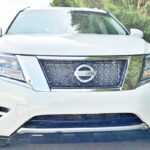
Recently, in the U.S., there have been increasing incidents where political tensions are expressed through violence, with Tesla recently becoming a target. At a Tesla dealership in Peabody, Massachusetts, a man damaged several vehicles, which is seen as an example of social tensions and ideological conflicts being directed at Tesla.
The attack occurred around morning on April 8. According to the police, the suspect sprayed red paint on the displayed electric cars and quickly fled the scene. However, thanks to the quick response of the Tesla store manager, the police could identify the suspect immediately, leading to the arrest of 28-year-old Gardy Pierre. His arrest is a warning sign of how extreme hatred toward Elon Musk manifests.

From Molotov Cocktails to Gunfire: A Series of Attacks
Pierre’s alleged rampage didn’t stop at vandalism. On the same day, he reportedly launched a Molotov cocktail attack on the Tesla store and even attempted to open fire at the scene. Fortunately, no one was injured, but several vehicles were damaged, with total losses estimated at around 500,000 USD. The Tesla dealership promptly suspended operations to begin repairs, and discussions about enhancing security measures are reportedly underway.
Prosecutors have charged Pierre with 11 counts of property damage and one count of disturbing the peace. Under U.S. law, each property damage charge can result in up to 3 years in prison or a fine up to 3 times the value of the damaged assets. On the other hand, the disturbing the peace charge may lead to a relatively mild sentence if it is his first offense. However, experts believe that, considering the scale of the damage and the impact of the incident, it is doubtful Pierre will receive a lenient sentence.
This seemingly premeditated attack underscores how individual grievances can pose significant threats to public safety. Given that Tesla is increasingly seen as a political symbol, the potential for hate crimes against the brand has become an undeniable reality.

Anti-Musk Sentiment: A Brand with Political Baggage
While the specific motive for this attack remains unclear, many believe political resentment toward Elon Musk in the U.S. played a key role. Recently, Musk has faced strong criticism from the progressive side for his role in the government’s efficiency department, where he laid off thousands of employees, and for maintaining close ties with the former Trump administration. In this context, Tesla is now seen as a car brand symbol of political views.
Opposition to Musk has turned Tesla owners and dealerships into direct targets of attack, a serious social issue. In recent months, incidents involving damage, graffiti, and arson targeting Tesla vehicles have become more frequent in the U.S. The Peabody incident is a dramatic example of this trend. The shift from EVs being seen as symbols of innovation to targets of social conflict is unprecedented.
Looking ahead, global brands like Tesla will need to adopt more cautious strategies, focusing on technological innovation and their brand’s political and social implications. As brand images continue to polarize in the U.S., how Musk and Tesla navigate this challenge will likely become a key point of interest.
























